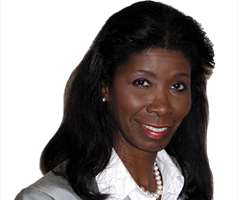
04 Jun Test Your Knowledge of Financial Basics by Darlene Van Beek
How well do you understand personal finance? The following brief quiz can help you gauge your knowledge of a few basics. In the answer section, you’ll find details to help you learn more.
Questions
How much should you set aside in liquid, low-risk savings in case of emergencies?
-
- One to three months’ worth of expenses
- Three to six months’ worth of expenses
- Six to 12 months’ worth of expenses
- It depends
Diversification can eliminate risk from your portfolio.
-
- True
- False
Which of the following is a key benefit of a 401(k) plan?
-
- You can withdraw money at any time for needs such as the purchase of a new car.
- The plan allows you to avoid paying taxes on a portion of your compensation.
- You may be eligible for an employer match, which is getting free money.
- d. None of the above
Some, but not all, of the money in a bank or credit union account is protected.
-
- True
- False
Which of the following is typically the best way to pursue your long-term goals?
-
- Investing as conservatively as possible to minimize the chance of loss
- Investing equal amounts in stocks, bonds, and cash investments
- Investing 100% of your money in stocks
- Not enough information to decide
In debt speak, what does APR stand for?
-
- Actual percentage rate
- Annual personal rate
- Annual percentage rate
- d. Actual personal return
Mutual funds are the safest types of investments.
-
- True
- False
I have plenty of time to save for retirement. I don’t have to concern myself with that right now.
-
- True
- False
What is/are the benefit(s) of a Roth IRA?
-
- A Roth IRA can provide tax-free income in retirement.
- Investors can take a tax deduction for their Roth IRA contributions.
- Investors can make tax
- All of the above
What is considered a good credit score?
-
- 85 or above
- 500 or above
- B or above
- 700 or above
Answers
- d. Although it’s conventional wisdom to set aside three to six months’ worth of living expenses in a liquid savings vehicle, such as a bank savings account or money market account, the answer really depends on your own situation. If your (and your spouse’s) job is fairly secure and you have other assets, you may need as little as three months’ worth of expenses in emergency savings. On the other hand, if you’re a business owner in a volatile industry, you may need as much as a year’s worth or more to carry you through uncertain times.
- b — False. Diversification is a sound investment strategy that helps you manage risk by spreading your investment dollars among several types of securities and asset classes, but it cannot eliminate risk entirely, and it cannot guarantee a profit. You still run the risk of losing money.
- c. Many employer-sponsored 401(k) plans offer a matching program, which is akin to receiving free money to invest. If your plan offers a match, you should try to contribute at least enough to take full advantage of it. Some matching programs impose a vesting schedule, which means you will earn the right to the matching contributions and any earnings on those dollars over a period of time.
If you selected b as your answer, you’ll note this is a bit of a trick question. Although income taxes are deferred on contributions to traditional 401(k)s, they are not eliminated entirely. You will have to pay taxes on those contributions, and any earnings on them, when you take a distribution from the plan. In addition, distributions taken prior to age 59½ may be subject to a 10% penalty tax. Some exceptions apply.
- a –– True. Deposits in federally insured banks and credit unions are insured by the Federal Deposit Insurance Corporation (FDIC) and the National Credit Union Share Insurance Fund (NCUSIF), respectively, up to $250,000 per depositor, per ownership category (e.g., single account, joint account, retirement account, trust account), per institution. Neither the FDIC nor the NCUSIF protects against losses in stocks, bonds, mutual funds, life insurance policies, annuities, or municipal securities, nor do they insure items held in safe-deposit boxes or investments in Treasury bills.
- d. To adequately pursue your long-term goals, you might consult with a financial professional before choosing a strategy. He or she will take into consideration your goals, risk tolerance, and time horizon, among other factors, to put together a strategy that’s appropriate for your needs.
- c. APR stands for annual percentage rate. This is the rate that credit card, mortgage, and other loan issuers use to show borrowers approximately how much they are paying each year to borrow funds, taking into account all fees and costs. The APR differs from a loan’s stated interest rate, which is typcially lower than the APR because it does not take into account fees and other costs. Borrowers can compare the APRs on different loans to help make smart financial decisions. However, when it comes to mortgages, borrowers should use caution when comparing the APRs of fixed-rate loans and adjustable-rate loans, because APRs do not represent the maximum interest rate the loan may charge.
- b — False. Mutual funds combine the money of many different investors in a portfolio of securities that’s invested in pursuit of a stated objective. Because of this “diversification,” mutual funds are typically a good way to help manage risk. However, the level of risk inherent in any mutual fund depends on the types of securities it holds. You should always choose a mutual fund carefully to make sure its objective aligns with your own investment goals. Read the fund’s prospectus carefully, as it contains important information about risks, fees, and expenses, as well as details about specific holdings.
- b — False. Although retirement may be decades away, investing for retirement now is a smart move. That’s because even small amounts–say just $50 per month–can add up through the power of compounding, which is what happens when your returns eventually earn returns themselves. This means your money goes to work for you!
- a. The primary benefit of a Roth IRA is that it provides tax-free income in retirement. Contributions are subject to income limits and are never tax deductible. Withdrawals may be made after a holding period of five years, provided they are “qualified.” A qualified withdrawal is one made after the account holder dies, becomes disabled, or reaches age 59½, or one in which the account holder withdraws up to $10,000 (lifetime limit) for a first-time home purchase.
- d. Because different organizations calculate credit scores based on varying factors, there is no single agreed-upon definition of what constitutes a “good” score. Generally, though, a score of 700 or above would likely reflect favorably on someone applying for credit.
Darlene Van Beek CFP®, RFC®Money Concepts Capital Corp. Financial Consultant
2985 Gordy Parkway, Marietta, GA 30066
Office: 770-578-3555, Mobile: 678-516-2479
DVanBeek@moneyconcepts.com www.Moneyconcepts.com/DVa

All Securities Through Money Concepts Capital Corp., Member FINRA / SIPC 11440 North Jog Road, Palm Beach Gardens, FL 33418 Phone: 561.472.2000 Copyright 2010 Money Concepts International Inc.



Sorry, the comment form is closed at this time.